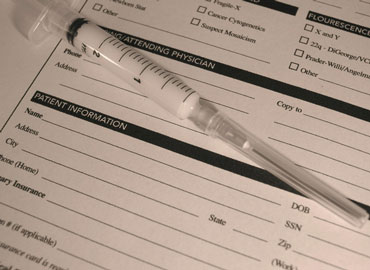
September 16, 2016
Getting a formal diagnosis of dementia may be an important step in helping people with early Alzheimer’s disease to stay safe. Those are the findings of a new study that found that older adults who likely have Alzheimer’s disease or another form of dementia but who have not been given the diagnosis are more likely to engage in potentially unsafe activities.
The study found that those with probable dementia were more likely to engage in potentially unsafe behaviors such as driving, using an oven and stove while preparing hot meals and managing their own medications and finances if they had not received a dementia diagnosis than if they had received a diagnosis. All of those activities carry a potentially high risk of injury or harm for someone with Alzheimer’s disease. Accidents and fires can pose serious risks to others as well.
“It’s important for physicians and families to realize that many individuals with dementia, especially undiagnosed dementia, engage in activities that are increasingly risky as the disease progresses,” said the study’s lead author, Dr. Halima Amjad, of the Johns Hopkins University School of Medicine’s Division of Geriatric Medicine and Gerontology in Baltimore. “Addressing safety may be one area where diagnosing dementia earlier can make a difference.”
Problems with activities like driving, cooking or balancing the checkbook may likewise be an indication that someone should be screened for Alzheimer’s disease, the researchers note. The findings were published in the Journal of the American Geriatrics Society.
For the study, the researchers looked at medical records for 7,609 men and women aged 65 and older who were enrolled in the large and ongoing National Health and Aging Trends study.Volunteers in the study are given regular medical checkups as well as tests of memory and cognitive skills.
More than 1,000 of the participants had memory and thinking problems that were serious enough that it was likely they had Alzheimer’s disease or another form of dementia. But fewer than half had been given a diagnosis of dementia by a doctor.
More than 20 percent of those with probable dementia were engaging in unsafe activities like driving and cooking. These activities were more common in those who had not been given a diagnosis of dementia than in those who had been diagnosed. For example, 28 percent of those with undiagnosed dementia were driving, compared to less than 20 percent of those with diagnosed dementia. Almost 42 percent were preparing hot meals for themselves, compared to less than 20 percent of those with a diagnosis.
While it often takes time to get a definitive diagnosis of Alzheimer’s, as determining the speed of the progression of the symptoms over time is a crucial parameter, an early diagnosis can help families to protect those with the disease.
“Just because someone has dementia doesn’t mean they can’t do these things on their own,” Dr. Amjad said. “But if both physicians and families are aware, then they can get safeguards in place.” Webcams, for example, might be placed in the home to monitor elderly people who live alone for falls, or to check whether a stove has been left on.
The researchers note that more than half of people with Alzheimer’s living in the community have not gotten a diagnosis of dementia. Understanding that many of them may be putting themselves or others at risk from activities like driving, managing their medications or preparing meals can be an impetus for screening for the disease.Getting a diagnosis can help families keep loved ones safe, make better decisions about daily activities and help prepare for the future.
By www.ALZinfo.org, The Alzheimer’s Information Site. Reviewed by Marc Flajolet, Ph.D., Fisher Center for Alzheimer’s Research Foundation at The Rockefeller University.
Halima Amjad, MD, MPH; David L. Roth, PhD; Quincy M. Samus, PhD; et al: “Potentially Unsafe Activities and Living Conditions of Older Adults With Dementia.” Journal of the American Geriatrics Society, June 2016.











